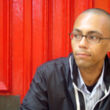The Between
(Libby/OverDrive eBook)
Available Platforms
Description
More Details
Similar Titles From NoveList
Similar Authors From NoveList
Published Reviews
Booklist Review
As Hilton James' fortieth birthday draws near, his dreams put a damper on his celebration. Thirty years ago, his grandmother sacrificed her life to save him from drowning. And now Hilton is experiencing nightmares that cause him to question his mortality: Should he be dead? Hilton is a dedicated social worker, his wife is the first African American judge in Miami, and their two children are healthy and bright. The Jameses are an enviable black, middle-class family. Ironically, the very success they sought has turned into their worst nightmare. After his wife prosecutes a criminal, he sends her racist hate mail, and around this time, Hilton's dreams become frightening. Hilton's reality becomes more surreal as the mail becomes more personal, suggesting harm will come to his children. In order to protect his family, his marriage, and his sanity, he seeks therapy and discovers the cause for his nightmares. Refreshingly, this novel of horror and the supernatural has an intriguing and suspenseful plot. Due may very well develop a loyal following with her first novel. --Lillian Lewis
Publisher's Weekly Review
Although set largely in the black and Hispanic communities of Florida's Dade County, Due's first novel, a skillful blend of horror and the supernatural, poses questions about life and identity that transcend racial boundaries. Thirty years after he was saved from drowning by the beloved grandmother who died in his place, Hilton James has built a secure middle-class life for his African American family and saved a few lives himself through his social work in Miami's inner city. His comfortable existence is shattered when his wife, a judge, begins receiving racist death threats and he starts having nightmares of alternate life experiences so authentic that they begin to loosen his grip on reality. Is Hilton a latent schizophrenic, as his therapist thinks? Or are the dreams and death threats both signs of a cosmic scheme in which Hilton is meant to accept the death that he eluded before? The mystical explanation Due posits for Hilton's predicament, involving ``travelers,'' or persons who unconsciously use dreams as ``doorways'' to elude fate and live in ``the between'' world, is not nearly as disturbing as her depiction of Hilton's gradual decline from caring husband and father to a man who lashes out in frustration against those he loves. Her sympathetic and credible portrait of Hilton as a man discomposed by his encounter with the unknown compensates for the novel's underdeveloped supporting cast. Due also subtly suggests the horrifying thought that pervades the story but is left tactfully unspoken: if each of us creates our own reality, then ultimately we are all alone in the world. $25,000 ad/ promo; author tour. U.K. and translation rights, HarperCollins; other rights, Marie Brown Associates. (May) (c) Copyright PWxyz, LLC. All rights reserved
School Library Journal Review
YAIt's 1963. Seven-year-old Hilton James, raised by his grandmother, finds her dead in their house, her skin cold. Yet when he returns with help, she's up and cooking, denying that anything's wrong. Months later, she saves him from drowning in the ocean, only to die herself. Flash forward 32 years. Hilton is the director of an addiction-recovery center, married to a newly elected judge, with two bright childrenthe epitome of a successful black family. But then his wife receives threatening letters from a white racist psycho, and the family begins to fall to pieces as Hilton becomes obsessed with protecting it. Due tosses in an eerie twist that builds throughout: Hilton dreads sleeping, because each time he falls asleep, something changes. Sometimes it's trivial, but other times it's critical. It all gets back to the fact that Hilton should have died when he was seven, and is literally living on borrowed time, able to travel unknowingly through doorways of alternative realities. Flaky as it sounds, it works: this novel is believable, powerful, and chilling. The portrayal of a realistic family with typical problems is refreshing, and even enhanced by the contrast with Hilton's bizarre struggle. Solid characterization seasoned with a perfectly judged pinch of spookiness.Chip Barnett, Rockbridge Regional Library, Lexington, VA (c) Copyright 2010. Library Journals LLC, a wholly owned subsidiary of Media Source, Inc. No redistribution permitted.
Kirkus Book Review
Intriguing first novel, by a Miami Herald syndicated ``dating'' columnist, that dances among horror, the occult, and a rational explanation for its weird moments, . At seven, Hilton James found his grandmother Nana dead on the kitchen floor and ran for help. But Nana was up and cooking dinner by the time he returned with help. Then, the next year, Hilton disobeyed Nana while swimming, got caught in the undertow, and was saved from drowning by Nana, who in turn allowed herself to be sucked under. Now, nearing 40, Hilton, an African-American, is head social worker at a Miami recovery center, has married Dede Campbell, the newly elected first black female circuit court judge in Dade County, and has two children. Hilton, however, fears that he's lived 30 years on borrowed time and that that time's up. Clairvoyant events point to Nana's having refused to die because she foresaw Hilton's drowning and stayed alive to save him. As a blind homeless man at the clinic tells him, there is a place between life and death called The Between, where ``travelers'' wait before entering the final door--all this from a blind man who actually died about two hours before Hilton had his talk with him! And what of Hilton's seduction by a supersexy client--a seduction he later finds never took place? Hilton undergoes still more fantasies bordering on virtual reality as, meanwhile, Dede receives racist death threats by mail--threats that, psychically, Hilton sees come from Charles Ray Goode, a released rapist whom Dede once sent to jail. With a psychiatrist, Hilton hashes over ``death cultures'' brought to this country from Africa, but chooses to agree that it's more likely that he's a schizophrenic. Later, Dede throws him out of the house for neglecting his children and physically hurting his son, but takes him back when told of Hilton's seeming illness. Together, they will face the man terrorizing them.... Neatly plotted and smoothly told, with an ending that avoids concrete explanations about Hilton's mental state.
Publishers Weekly Reviews
Although set largely in the black and Hispanic communities of Florida's Dade County, Due's first novel, a skillful blend of horror and the supernatural, poses questions about life and identity that transcend racial boundaries. Thirty years after he was saved from drowning by the beloved grandmother who died in his place, Hilton James has built a secure middle-class life for his African American family and saved a few lives himself through his social work in Miami's inner city. His comfortable existence is shattered when his wife, a judge, begins receiving racist death threats and he starts having nightmares of alternate life experiences so authentic that they begin to loosen his grip on reality. Is Hilton a latent schizophrenic, as his therapist thinks? Or are the dreams and death threats both signs of a cosmic scheme in which Hilton is meant to accept the death that he eluded before? The mystical explanation Due posits for Hilton's predicament, involving ``travelers,'' or persons who unconsciously use dreams as ``doorways'' to elude fate and live in ``the between'' world, is not nearly as disturbing as her depiction of Hilton's gradual decline from caring husband and father to a man who lashes out in frustration against those he loves. Her sympathetic and credible portrait of Hilton as a man discomposed by his encounter with the unknown compensates for the novel's underdeveloped supporting cast. Due also subtly suggests the horrifying thought that pervades the story but is left tactfully unspoken: if each of us creates our own reality, then ultimately we are all alone in the world. $25,000 ad/ promo; author tour. U.K. and translation rights, HarperCollins; other rights, Marie Brown Associates. (May) Copyright 1995 Cahners Business Information.
School Library Journal Reviews
YA?It's 1963. Seven-year-old Hilton James, raised by his grandmother, finds her dead in their house, her skin cold. Yet when he returns with help, she's up and cooking, denying that anything's wrong. Months later, she saves him from drowning in the ocean, only to die herself. Flash forward 32 years. Hilton is the director of an addiction-recovery center, married to a newly elected judge, with two bright children?the epitome of a successful black family. But then his wife receives threatening letters from a white racist psycho, and the family begins to fall to pieces as Hilton becomes obsessed with protecting it. Due tosses in an eerie twist that builds throughout: Hilton dreads sleeping, because each time he falls asleep, something changes. Sometimes it's trivial, but other times it's critical. It all gets back to the fact that Hilton should have died when he was seven, and is literally living on borrowed time, able to travel unknowingly through doorways of alternative realities. Flaky as it sounds, it works: this novel is believable, powerful, and chilling. The portrayal of a realistic family with typical problems is refreshing, and even enhanced by the contrast with Hilton's bizarre struggle. Solid characterization seasoned with a perfectly judged pinch of spookiness.?Chip Barnett, Rockbridge Regional Library, Lexington, VA
Reviews from GoodReads
Citations
Due, T. (2011). The Between . HarperTorch.
Chicago / Turabian - Author Date Citation, 17th Edition (style guide)Due, Tananarive. 2011. The Between. HarperTorch.
Chicago / Turabian - Humanities (Notes and Bibliography) Citation, 17th Edition (style guide)Due, Tananarive. The Between HarperTorch, 2011.
Harvard Citation (style guide)Due, T. (2011). The between. HarperTorch.
MLA Citation, 9th Edition (style guide)Due, Tananarive. The Between HarperTorch, 2011.
Copy Details
| Collection | Owned | Available | Number of Holds |
|---|---|---|---|
| Libby | 1 | 1 | 0 |































